Apple holds on to U.S. Smartphone subscriber lead
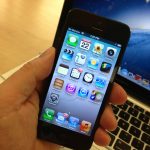
In the highly saturated U.S. smartphone market, Apple's dominance grew, while iPhone nipped upwards towards Android, for the three months ended in January, according to comScore. The analyst firm, unlike most of its competitors, measures actual subscriber share rather than number of units shipped. Like Gartner's counting actual sales, comScore gives a clearer view of real-world dynamics.
During iPhone 5's first full three months of sales, Apple's share reached 37.8 percent -- up from 36.3 percent in December and 34.3 percent in October. By comparison, second-place Samsung nudged up to 21.4 percent share, from 21 percent sequentially and 19.5 percent for the same three months. HTC, Motorola and LG followed, with respective shares of 9.7 percent, 8.6 percent and 7 percent. All three lost share from December, with LG up ever-so slightly from October. Motorola's loses strongly suggest that at Verizon, carrier with the highly-visible Droid line of smartphones, subscribers shift allegiance to other brands. Good thing Moto has a new evangelist.
Up yours Apple! Samsung to launch Galaxy S IV in the US next month

Samsung might have received a $1.05 billion bloody nose in its battle against Apple last year, but the South Korean giant is coming back fighting, by launching the next version of its flagship smartphone on US soil next month. The first such launch in three years.
Confirmed today at the Mobile World Congress in Barcelona, and in a tweet, Samsung will be unveiling the Galaxy S IV in New York as part of the Samsung Unpacked event on March 14.
There is little room for a third smartphone platform

"We're No. 3!" will be BlackBerry's and Microsoft's rallying cry this year. Android and iOS so dominate the smartphone market, the best -- and quite honestly dismal -- hope is third; distant at that. Combined, based on actual phone sales, Android and iOS had 90.1 percent share during fourth quarter, up from 74.9 percent a year earlier, according to Gartner. BlackBerry and Windows Phone are neck-and-neck, with lowly 3.5 percent and 3 percent standings, respectively.
Upstarts want third place, too. Anshul Gupta, Gartner principal research analyst, explains: "2013 will be the year of the rise of the third ecosystem as the battle between the new BlackBerry10 and Widows Phone intensifies. As carriers and vendors feel the pressure of the strong Android’s growth, alternative operating systems such as Tizen, Firefox, Ubuntu and Jolla will try and carve out an opportunity by positioning themselves as profitable alternatives".
iPhone cracks against the Great Wall of China

The Chinese smartphone market is dominated by five top manufacturers, none of them Apple, Canalys reveals. As I've warned a couple times recently, despite CEO Tim Cook's prognostications about China's importance or his company boasting 2 million first-weekend iPhone 5 sales, competitors rapidly close out the market for costly fruit-logos.
China is the biggest market for mobiles, largely dominated by smartphones -- 73 percent of the total in fourth quarter, up from 40 percent a year earlier. Shipments soared 113 percent to 64.7 million units, or 30 percent of all smartphones globally. Samsung captured the top spot, followed by Lenovo, Yulong, Huawei and ZTE.
Uh-oh, $50 smartphones mean big trouble for Apple
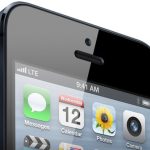
That sound you hear: Emerging markets sucking the margins out of iPhone. Gartner predicts that Chinese brand and white-box handset manufacturers will dramatically change the smartphone market's course this year. Android is likely to be the big beneficiary, while iPhone has the most to lose. Economies of scale will bite Apple, which benefits from one of the tightest supply chains anywhere. Chipset integration, for example, will allow handset makers to ship cheaper devices that are good enough, even if less than market leaders.
"The combination of competitive pricing pressure, open-channel market growth and feature elimination/integration will very soon result in the $50 smartphone", Mark Hung, Gartner research director, says. "Semiconductor vendors that serve the mobile handset market must have a product strategy to address the low-cost smartphone platform, with $50 as a target in 2013". That's right, 50 bucks, not the $650 Apple charges carriers.
Android is winning the mobile platform wars

Some days the sorry state of news reporting really baffles me. Today I read numerous headlines claiming that Android tablet share surged past 50 percent in Q4, usurping iPad -- all using numbers I wrote about a day earlier. The one on CNN -- "IDC says Android is the new king of tablet market share" -- got to me. Immediate reaction: "What did I miss?" But in looking over the numbers, nothing really jumped out that IDC said any such thing. Sure iPad shipment share fell to 43.6 percent from 51.7 percent annually and from 46.4 percent sequentially. I chose to ask the analysts rather than follow the feeding frenzy.
"Android actually passed the 50 percent mark in 3Q 12", Tom Mainelli, IDC research director for tablets, says. Whoa, there's no new king at all. Android took the crown last summer. Still, that's a phenomenal achievement, setting me to write a story I couldn't imagine a year ago.
iPhone wins the U.S. (kind of), but Android rules the world

Americans love their iPhones, finally enough to topple Samsung's long-time leadership. During fourth quarter, Apple nudged ahead of the South Korean electronics giant, with 34 percent share, based on shipments, according to Strategy Analytics. To be clear, the numbers are for all mobiles, not just smartphones. The distinction is important for several reasons. The American company only ships smartphones, for which demand rages. Related: Overall phone shipments fell for the year.
"Apple has become the number one mobile phone vendor by volume in the United States for the first time ever", Neil Mawston, Strategy Analytics research director, says. "Samsung had been the number one mobile phone vendor in the U.S. since 2008, and it will surely be keen to recapture that title in 2013 by launching improved new models such as the rumored Galaxy S4".
There's something you should know about Apple

Panic in Cupertino: Headless chickens run around smacking into one another, because they don't know they're dead.
That's the fundamental problem with Apple, and this situation is largely independent of recent stock price declines that analysts, bloggers, reporters and other writers can't opine enough about. Falling shares are part of a necessary correction, as reality displaces perception. To understand what's happening now, you need to look into the past -- three years, which by Internet counting is like a lifetime.
Android stomps all over iOS

Keeping with an ongoing trend, Android solidified its global smartphone dominance in fourth quarter and for all 2012, according to Strategy Analytics. The Android Army sent iOS idolaters into retreat during Q4, iPhone 5's first full three months of sales. Like I explained in September, "Android wins the smartphone wars".
During fourth quarter, iOS share fell to 22 percent from 23.6 percent a year earlier. Meanwhile, Android rose to 70.1 percent from 51.3 percent. For all 2012, iOS nudged up to 19.4 percent from 19 percent share, while Android reached 68.4 percent, up from 48.7 percent. The differences between the quarter and year, strongly suggest sales surge at the end, for Android, which forebodes poorly for Apple when iOS got big lift from iPhone 5's recent launch.
My Apple boycott is over
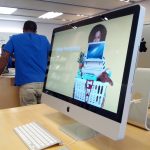
Suddenly, I feel sorry for the folks over at Apple. Chicken Little bloggers and Wall Street analysts run round crying "The sky is falling!" Strangely, they are believed. Apple shares are down 38 percent from September's all-time high. On Friday, the company's market cap fell below Exxon's. Suddenly, the world's most valuable company isn't. I just don't feel right kicking fruit as it falls down, so as a gesture of goodwill my boycott ends today.
That's not to say I have plans to buy any Apple products. I'm more than satisfied with Chromebook and my three Nexus devices. That said, as an act of solidarity, I let Apple auto-charge my credit card for iTunes Match renewal today. I don't own a single device that supports the service, but, hey, what's $24.95 between friends? I was a loyal OS X and iOS user until my boycott started in June 2012, protesting aggressive patent lawsuits -- unaffectionately called innovation by litigation.
How Apple can get its mojo back
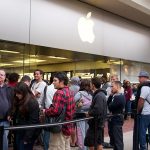
Apple executives like to talk about the post-PC era as an opportunity. But they have a post-Steve Jobs crisis that needs resolution first -- and fast. This week's calendar fourth quarter earnings report is time to assess where the company is and where it might be a year from now, and whether investors should lift falling shares from the nosedive.
Post-Steve Jobs -- and I'm talking as much about the time before his death -- Apple has lost the quality that made great products. The company’s approach to computer/device design is consistent and pervasive: Humanization. Apple design seeks to humanize complex technological products. There has been much written about Apple design in context of products that look good. But there is something more fundamental: Designing tech that is easy to use by making it more an extension of the human being -- more part of you. It's this quality missing from recent new product iterations, which aren't any more human-like than their predecessors. Meanwhile, competitors like Samsung do better.
Samsung surges as US consumers pull back from iPhone

ChangeWave has new data out today showing an expected, but dramatic, decline in iPhone buying intentions over the next 90 days and unexpected jump for Samsung smartphones -- two models particularly: Galaxy S III and Note II. One-half of US consumers say they'll buy Apple's handset, but that's down from 71 percent three months earlier. Interest in the South Korean manufacturer's devices surged to 21 percent from 13 percent during the same time frame.
"Consumer buying intent for Samsung smartphones has been extraordinary to start the year", Paul Carton, ChangeWave's vice president of research, says. "Considering the Galaxy S III has been out for several months we'd normally expect a slowdown by now, but it’s still red hot. We’re also seeing strong interest in Samsung’s large-screen phone -- the Galaxy Note II. Super-sized smartphones are taking the industry by storm in 2013". Among those planning to buy a Samsung smartphone, 69 percent say Galaxy S3 and 23 percent Note II.
That's not iPad 4, it's the new Archos 97 Titanium HD
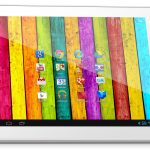
Apple's newest iPad and mainstream Android tablets couldn't be more different in the display department -- the former embraces a more conservative 4:3 format while the latter prefer the multimedia-oriented widescreen panels. However, French consumer electronics company Archos deviates from the norm with the 97 Titanium HD, an Android tablet with an iPad 4-like display.
The 97 Titanium HD tablet features a 9.7-inch IPS display with 10 point multitouch and a resolution of up to 2048 x 1536. Power comes from a 1.6GHz dual-core processor based on the A9 architecture, a quad-core Mali 400 MP4 graphics card and 1GB of RAM, a combination similar to the one found in the original Samsung Galaxy Note. The tablet also sports 8GB of internal memory, alongside a microSD card slot that can extend the storage capacity by a further 64GB. What about the software?
Google Nexus 10 first-impressions review

A month has passed since I started using Nexus 10, Google's first 10.1-inch tablet, which Samsung manufactures. iPad is reason for the delay writing this review. I bought the first three generation models and sold each within two months. The appeal didn't last, in part because of the user interface's long-term limited utility. So Nexus 10 faced resistance before I opened the box and for another, compelling reason: I was (and still am) hugely satisfied with sibling Nexus 7, which form factor and feel in the hand hugely appeal. After a month of testing, just to make sure, I don't plan on selling the larger tablet; its immediate fate won't be that of iPad 1, 2 or 3.
I definitely recommend Nexus 10 to anyone considering a tablet this year in the $400-$500 range. Nexus 7 ($200-$300) is a better option for the budget conscious -- or even Kindle Fire HD ($300-$600). I don't recommend iPad 4 or mini. They cost too much ($329-$829) for the benefits, and iOS has fallen behind Google and Microsoft operating systems. My experience with Surface RT is limited, but the tablet makes a great first impression such that it's worth considering -- and easily over Apple's larger tablet.
You can have iPhone 5, I'll take Google Nexus 4
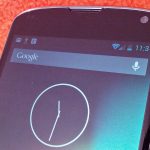
I can see only one good reason to choose iPhone 5 over Nexus 4: The LG-manufactured mobile is sold out, and you can't wait. For the patient, Google's fourth-generation stock Android delivers rewarding experience. The new Nexus is the smartphone to buy this holiday season -- if you can find one.
Two reasons stand in iPhone 5's favor, neither is good, just necessary for some people: Your carrier -- for example, Sprint and Verizon in the United States -- isn't supported (Nexus 4 is GSM/HSPA+), or you bought heap loads of apps from Apple and don't want to lose your investment. I feel your pain, but offer no pity. Nexus 4 is exceptional.
Recent Headlines
Most Commented Stories
BetaNews, your source for breaking tech news, reviews, and in-depth reporting since 1998.
Regional iGaming Content
© 1998-2025 BetaNews, Inc. All Rights Reserved. About Us - Privacy Policy - Cookie Policy - Sitemap.